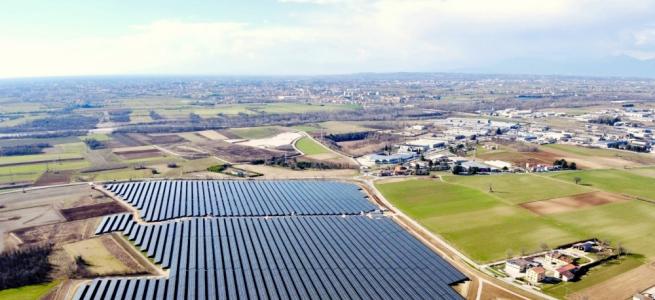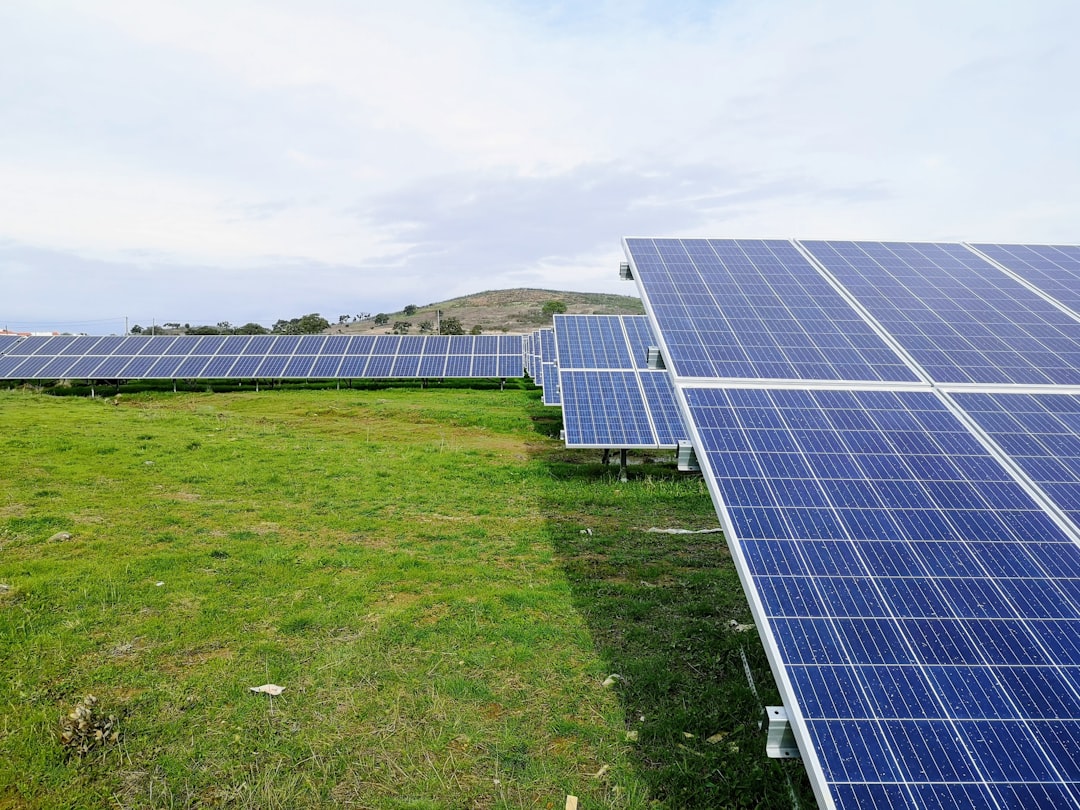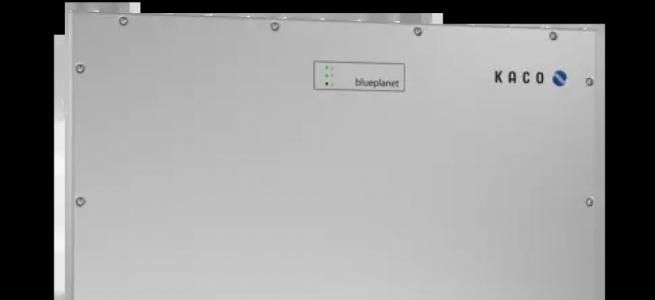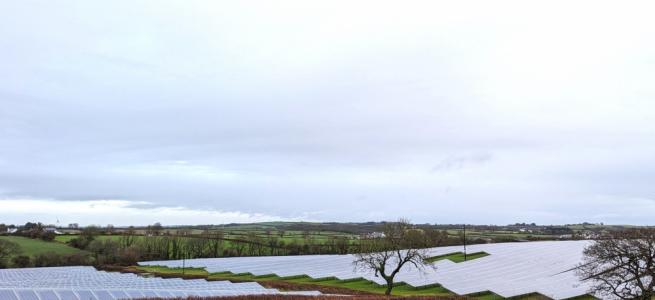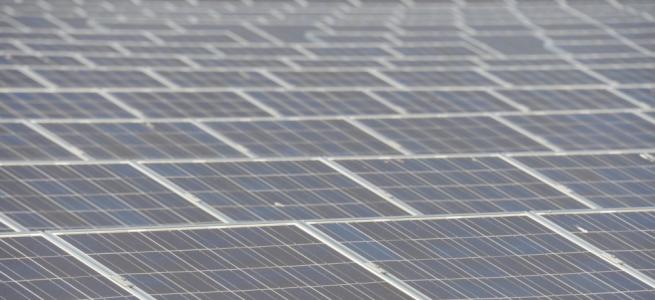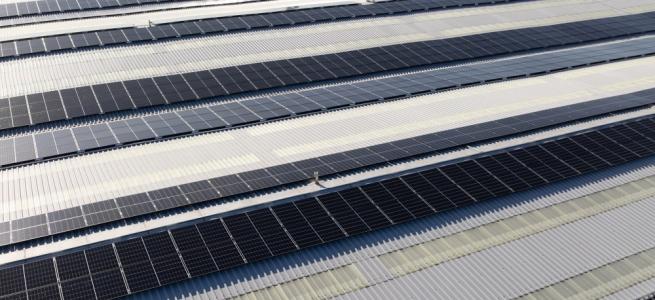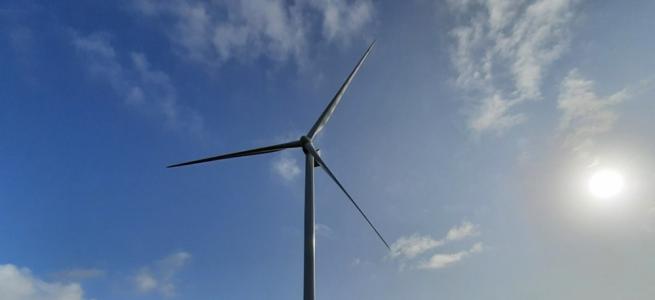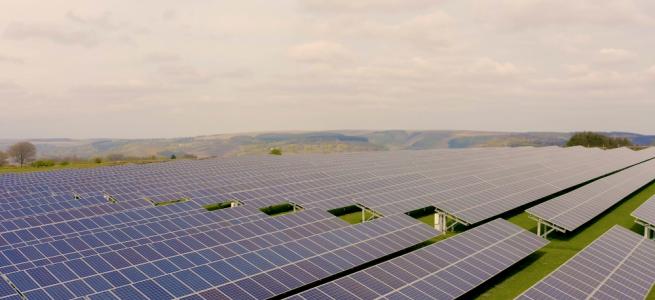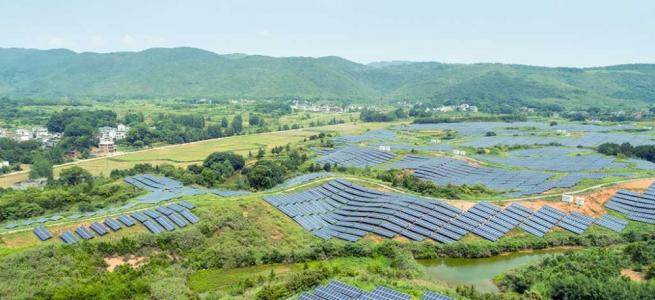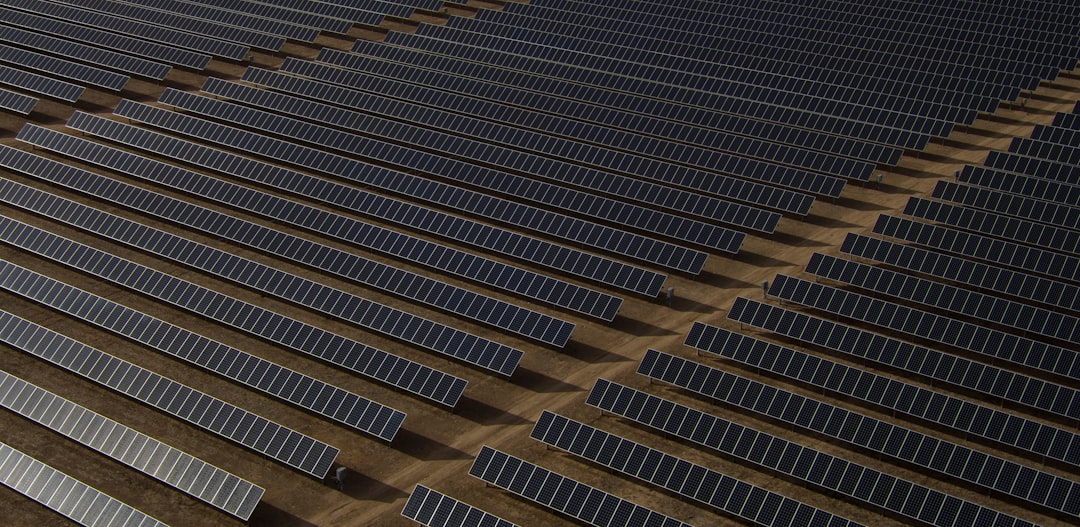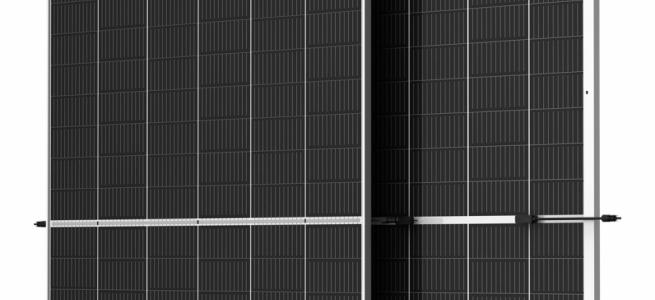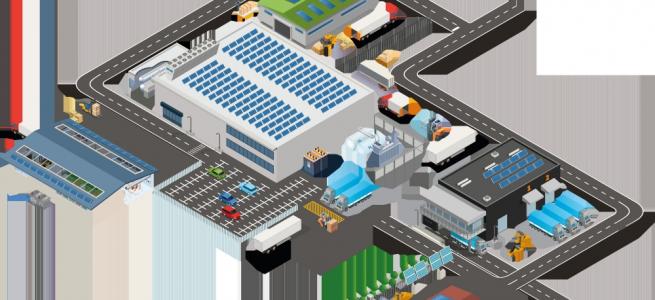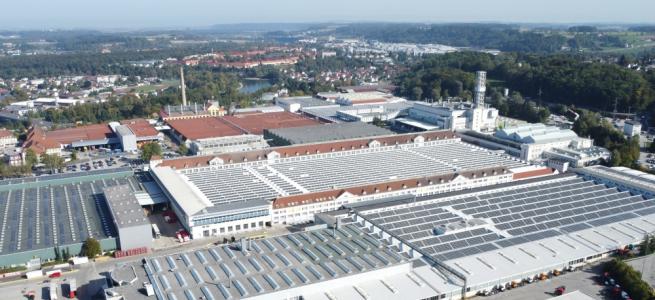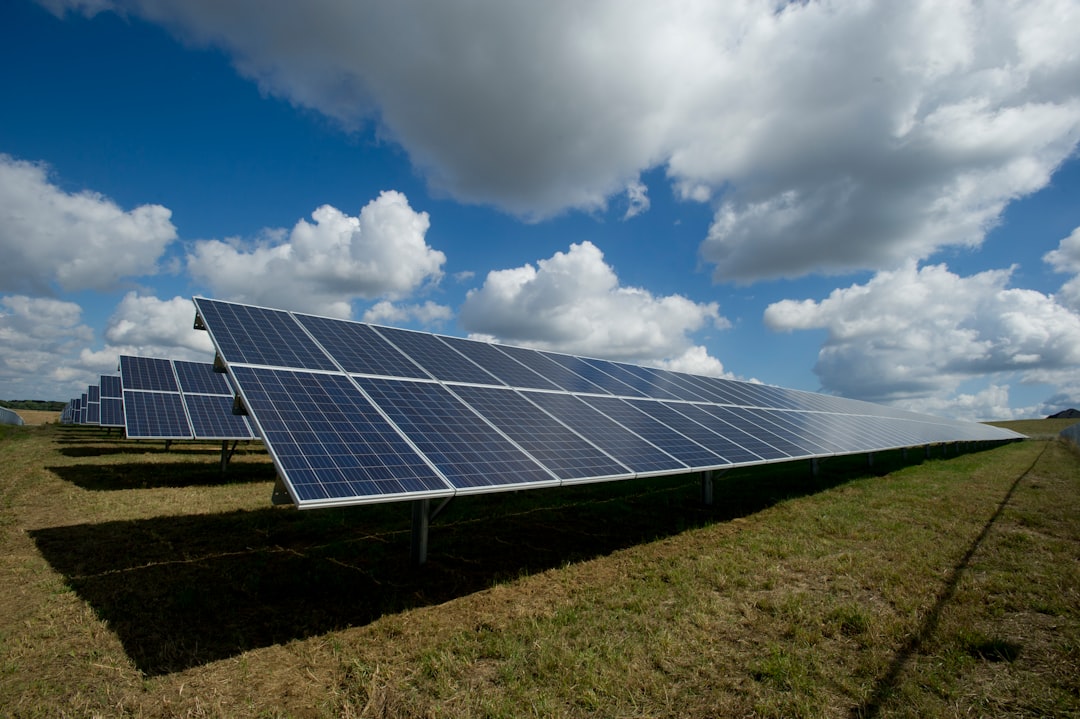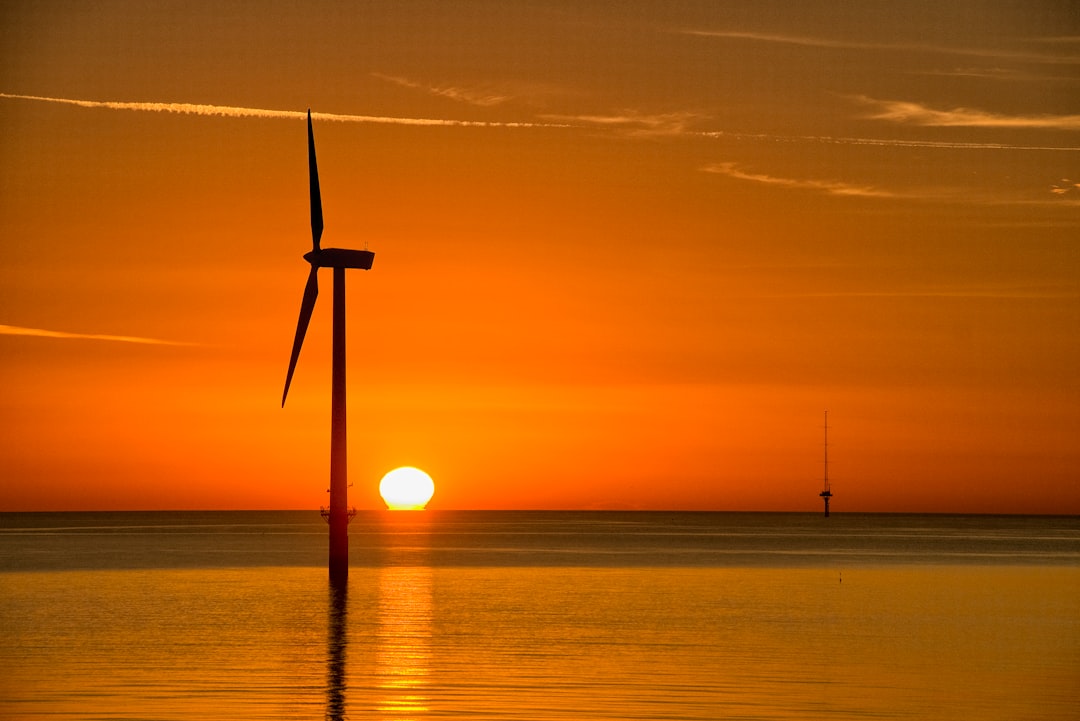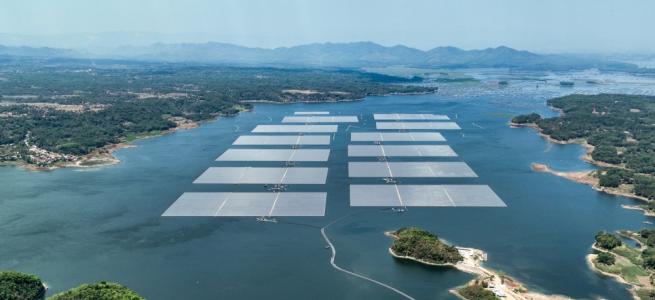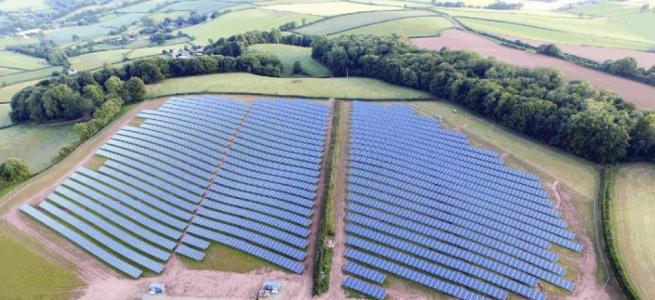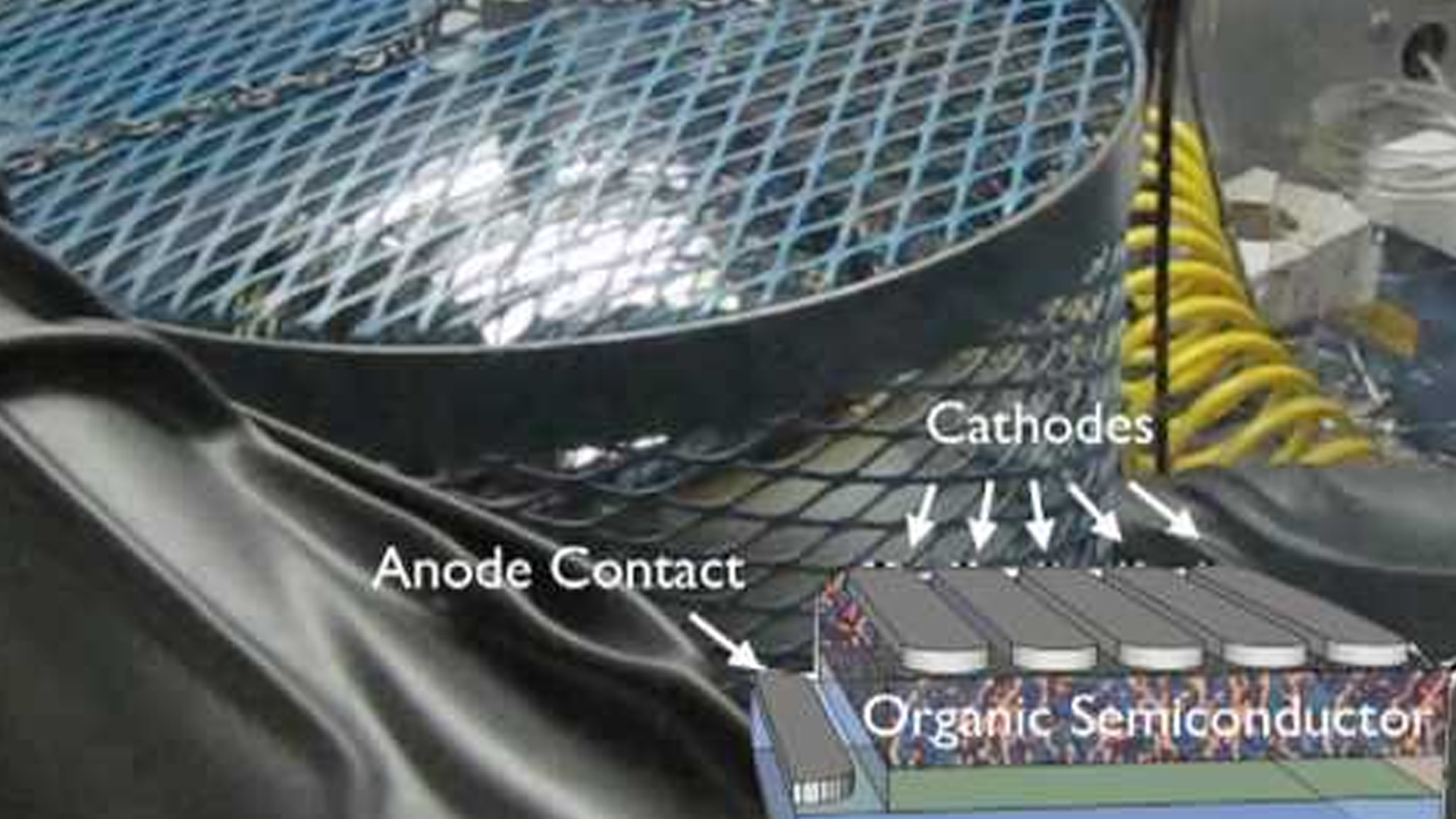EU told to crack down on governmental changes

More than 70 companies and associations in the solar photovoltaic (PV) electricity sector have co-signed a letter to European Energy Commissioner Gunther Oettinger, calling on the EU to take action against Member States that are enacting retroactive measures or moratoria on support schemes for renewables. The letter, sent by the European Photovoltaic Industry Association (EPIA), makes reference to recent or imminent action in several countries "“ including Belgium, France, Czech Republic, Italy, Spain, Bulgaria and Greece.
"Such measures seriously damage the investment climate in general and for renewables in particular, not only in the countries where they occur, but also throughout Europe," the letter states. "We therefore call on you to react strongly to these decisions and use, where appropriate, all the legal means the European Commission has to stop this trend, which threatens the climate of confidence needed in Europe to attract further investors."
The signatories also point out that these actions can "heighten the perceived risk in investments in renewables, and PV in particular, thus unnecessarily increasing the cost of capital for private operators. In the transition to a power sector that will require more CAPEX-intensive investments, retroactive measures will seriously endanger the achievement of 2020 targets."
The changes in the FiT schemes and subsidies across Europe have changed the way the industry functions and has made it nearly impossible for the industry to effectively plan and manage capacities to the detriment of all.
![]()
Country: Bulgaria
Measure n°1: Retroactive measure
The State Commission on Energy and Water Regulation (SCEWR) implemented grid access payments for all renewable installations, commissioned after 04.2010. The "˜grid access payment' (GAP) is structured and functions as an additional fee.
The GAP is based on applications from the operators of the Transmission and Distribution grids, who had informed SCEWR about "˜increased costs for management and dispatching of the grids due to the large amount of renewable energy electricity generators'. The determined GAP are not based on calculations of the real costs for management of the energy system, but as a share of the price for purchasing the electricity from RES. In addition, the GAP are discriminatory.
Impact on the Sector
The decision is making it impossible for PV producers to pay their bank loans. Most affected by the GAP are small and medium PV producers with installations commissioned in H1 of 2012, who have to pay 39% of their income and directly face bankruptcy.
Measure n°2: Moratorium
No grid connection procedure for renewable energy sources (RES).
1) The Renewable Energy Act (RESA), adopted on May 3rd 2011, implemented a moratorium on new grid connected RES. RESA provided no procedure for grid connection until July 2012, when SCEWR determined annual maximum admissible grid capacity for new RES initiatives. By Decision EM-01/29.06.2012 SCEWR determined 0 (zero) MWp capacity for RES for the regulatory period (07.2012-06.2013).
Impact on the Sector
The only RES projects that can be developed are rooftop and façade PV installations on residential (up to 30kWp) and industrial buildings (up to 200kWp). Grid operators wrongly interpret the notification of NEC as relevant to such projects and therefore send letters to the producers with proposal for postponement of the grid connection after 2016. Large investments in PV projects, modules and equipment are stopped or nullified by these provisions.
Measure n°3:
Cancellation of support
Ban on the construction of PV installations on agricultural lands from 1st to 4th category. The ban affects only PV installations, not other RES technology, nor conventional energy generators, buildings, etc. The ban was implemented as amendment to the Act for Protection of Agricultural Lands (APAL).
Impact on the Sector
Agricultural lands with category 1-4 represent more than 40% of the agricultural lands in Bulgaria. According to calculations of BPVA, not more than 0.5% of the agricultural lands in Bulgaria could be used for building of 1500MWp of PV.
Measure n°4: Unplanned support reduction
SCEWR is allowed to determine FiTs more than once per year, but based on unclear conditions and without transparent methodology. By an amendment to RESA, adopted on July 17th 2012, SCEWR can determine the price for purchasing electricity from RES more than once per year. The only necesary condition, which enables this right of SCEWR, is more than a 10% decrease in the value of a price-forming element that should be observed since the moment of the last determination of FiTs.
According to this provision, SCEWR determined new purchasing prices for RES at the end of July 2012 with a more than 54% cut (annual adaptation) and proposed another change of the prices only for PV - just three weeks after that - on July 21st 2012 (decreasing PV FiTs with other 39%). New FiTs for PV only were determined by SCEWR from September 1st 2012.
The SCEWR motivated this second determination of FiTs on a single website of a German installer company with two completed projects, which gives a chart with the evolution of the PV module prices weekly. BPVA analysis of the website shows that there was no statistic proof of a change in the price-forming components with more than 10%.
Impact on the Sector
No bank would agree to finance PV or RES investment, because with SCEWR can change the FiT unpredictably; there is no minimum period for which a price change could not occur and there is no clear interval for price decrease.
![]()
Country: Belgium - Flanders
Measure n°1: Retroactive measure
New grid fee in Flemish region for PV 10 kW for the partial compensation of missed distribution fee caused by net metering allowed for this category of small PV systems.
Details:
£ A fixed 53 euro per year per kW installed or
£ Injection-based fee measured through a smart meter able to measure injected and withdrawn electricity to/from grid. The meter will have to be paid by the PV owner
£ Proposal from distribution grid operators, to be approved by the national regulator CREG
£ Decision applicable to all existing and new PV systems from 1 January 2013
Impact on the Sector
The grid fee will be over 55% of the new support by green certificates as from January 2013
Measure n°2: Unplanned support reduction
Drastic cut in green certificate support mechanism.
£ decrease announced on May 25th, going into effect on August 1st (two months later), without consultation of the PV sector in advance
£ reduction of guaranteed price for PV green certificates from 210 euro/MWh over 20 years to 90 euro/MWh over 10 year (= reduction of total support per kWp PV from 4200 euro to 900 euro = minus 79%).
Impact on the Sector
PV market has been moribund since August 1st, 2012: only
493 kW has been installed in comparison to 230 MW in the first 6 months. Uncertainty about the new green certificate price valid from January 2013 will last till beginning of December, leading to a serious market decrease and PV companies going broke or shrinking.
![]()
Country: Czech Republic
Type of Measure: Retroactive measure
Many retroactive legislative measures have been introduced since 2011: abolition of tax holidays, changes in depreciation, abolition of contribution on decentralized production, obligation to equip PV installations with facilities for remote power control, recycling fees.
The largest impact has been a so called solar tax which decreased retroactively the FiT by 26% and green bonuses by 28%. The tax hasn´t been implemented in the frame of the tax legislation but within the Amendment to the Act on RES 180/2005 Coll.
The tax has been implemented for a three-year period (2011-2013). The tax on PV investments together with the gift tax on carbon credits and an increased fee for usage of an agricultural land for construction of the PV power plant have been adopted in order to decrease impact of the RES on the price of electricity.
Impact on the Sector
The result of all these steps is that the payback period for PV installations has been pushed 15 years beyond what was guaranteed by the law (the lifetime is 20 years) in many cases. Photovoltaic power plants are operating at a loss. Many of them have negative cash flow, the operational costs are higher than revenues after the solar tax. The Czech PV Association keeps track of several forced sales when entrepreneurs were unable to repay bank loans.
![]()
Country: France
Measure n°1: Moratorium
On 9 December 2010, the Decree n° 2010-1510 the Government decided to suspend, for 3 months, the purchase obligation which applies to photovoltaic installations above 3 kWp.
Under specific criteria, PV projects which have accepted the quote for grid connection before the 2nd December 2010 have to be grid connected and commissioned within 18 months beginning from the quote acceptation, or 9 months if the quote has been accepted more than 9 months before the decree publication. The moratorium ended on 4 March 2011 with the publication of a new Feed-in tariff decree, which applies to all PV systems up to 12 MWp.
Impact on the Sector
The measure has led to the cancellation of many PV projects above 3 kWp. For a period of 3 months, many solar companies were unable to launch new projects due to the suspension of the purchase obligation.
Measure n°2: Retroactive measure
A decree project on the Feed-in tariff level has been under discussion since October 2012; it foresees a 20% decrease of the FiT applicable to all installations above 100 kWp, or without specific integration, or ground mounted.
This decrease will be applied to all projects which have asked for grid connection starting from 1 October 2012.
Impact on the Sector
This will lead to a low FiT for specific installations, with a retroactive effect.
![]()
Country: Greece
Measure n°1: Retroactive measure
New tax on revenue generated by renewable energy systems as part of new austerity measures. The tax on existing solar power plants will be between 25% and 30%, and is aimed at helping the country reduce its deficit.
More specifically:
£ PV systems installed before 2012 have been assigned a tax of 25%
£ PV systems built from Jan 1, 2012 that receive a FiT calculated according to the law 3734/09, article 27A between February and August 2012 onward will be taxed at 27%.
£ PV systems built from Jan 1, 2012 that receive a FiT calculated according to the law 3734/09, article 27A before February 2012 will be taxed at 30%.
£ Revenue generated by other types of renewable energy systems, including wind, biomass and hydroelectric, will be taxed at 10%.
YPEKA (Ministry of Environment, Energy and Climate Change) could decide to extend the retroactive tax by one year.
The tax excludes rooftop systems with a capacity <10 kWp, as well as PV systems built from Jan. 1, 2012, that receive a FiT calculate according to the law 3734/09, article 27A.
Impact on the Sector
The measures will drive many small- and mid-size solar companies out of business because they will not be able to repay bank loans.
Solar plants were already charged with tax of 40% on profits; the new measure brings the overall taxation unrealistically high and
makes unsustainable many investments.
Measure n°2: Suspension of authorization procedures for new PV projects
In August 2012, the Greek Ministry of Environment, Energy and Climate Change put on hold authorization procedures for new PV projects. This decision has affected over 7.5 GWp of PV projects which had initiated such procedures. The only category not affected by the decision is the residential sector (PV systems <10 kWp). The reasoning for this suspension of authorization is the large number of applications overriding the indicative PV national target for 2020.
However, this target (2.2 GWp) is only indicative and according to existing legislation can be revised every two years. The Greek PV industry is asking for such a revision and a considerable increase of the target for PV (up to 6 GWp) until 2020.
![]()
Country: Italy
Measure n°1: Unplanned support reduction
Sudden stop of III Conto Energia (DM 6/08/2010): application to pv plants entering into operation from 01.01.2011 to 31.12.2013. However, due to the so-called "Salva Alcoa" arrangement (which allowed plants built by 31/12/2010 to accede incentives of II energy bill up to 30/06/2011), lasted only five months. Then the IV Conto Energia entered into force.
Impact on the Sector
In less than two years Italy has had three different incentive systems. These sudden changes of legislation have generated many uncertainties on the part of operators and in some cases limited access to credit
Measure n°2
Unplanned support reduction
IV Conto Energia (DM 5/05/2011): introduction of limits on access to incentives, such as the "register" for so-called "big plants" , rapid and sudden decrease of incentives, excessive bureaucracy
Impact on the Sector
The three different incentive systems in less than two years continues to impact the Italian system. These sudden changes have generated uncertainties on the part of operators and in some cases limited access to credit
Measure n°3: Unplanned support reduction
Revision of minimum guaranteed prices for the dedicated withdrawal
Impact on the Sector
Yet another change of a regulatory framework a few weeks after the publication of the IV Conto Energia. It created further uncertainty in the sector.
Measure n°4: Unplanned support reduction
V Conto Energia (DM 05/07/2012): Anticipation of the transition from Feed-in premium to Feed-in tariff (net metering and dedicated withdrawal alternative incentives) - new tariff and premium for self-consumption. Tariff decrease of 50-75% over those of IV Conto Energia, limited budget of 0,7 billion euros divided in the 5 semesters; lack of protection of investments in progress; in order to access to the incentive system, PV plants must be included in a register drawn up on the basis of suitable criteria (exclusion: all PV systems up to 12 kW and PV system up to 50 kW with asbestos removal that directly access to FiT)
Impact on the Sector
Once again the three dramatic changes to the Italian system have led to a situation of uncertainty for operators leading to restrictions of credit and uncertain conditions in the market.
Measure n°5: Cancellation of support
Restricts access to the incentive for photovoltaic systems installed in agricultural areas. Since its entry into force ground-mounted PV plants in agricultural areas no longer get incentives.
Impact on the Sector
Uncertainty again due to the sudden changes over two years. No market can tolerate three major and rapid unannounced tariff changes with leading to uncertainty and difficulty in credit acceptance from the banking sector.
Measure n°6: Cancellation of support
Prohibits the construction of photovoltaic systems on the ground in industrial areas - introduction of a register for PV plants (12 kW and above) installed on buildings and priority criteria for "˜access to the registry completely different compared to the criteria valid for the IV Conto Energia
Impact on the Sector
Limits the installation of residential PV systems. Consequent suffering of the sector.
Measure n°7: Retroactive measure
Introduction of the contribution of 0.05 cents ? for each kilowatt-hour of energy self-produced and incentivised in 2013 and retroactive for all PV systems incentivised according to the 4 previous Conto Energia. This is to cover the GSE costs of managing, monitoring and control.
Impact on the Sector
It is an addition operational cost for the management of the systems (OPEX) not budgeted
Measure n°8: Other
Consultation paper of Italian TSO (Terna) published at the end of July 2012. It established, with effect from 1 August 2012, in case of emergency situations (probably in the peak of PV production during summer), a reduction of the production plants of Distributed Generation connected to the medium voltage. In particular this referred to non-programmable solar/wind systems up to 100 kW.
Impact on the Sector
Although, there hasn't been any detachment, the lack of a clearly defined procedure of this measure has created much confusion among operators. In addition, we highlight two problems: firstly the lack of any compensation for the failure to produce photovoltaic energy (as is the case for wind power) and secondly the lack of a time limit of application of the measure (and so, in this way seems already applicable today)
Measure n°9: Other
All PV systems with an installed capacity over 50 kW and connected to Medium Voltage grid by March 31, 2012 must carry out retrofits to be completed by March 31, 2013 whereby plants are brought into conformity with Chapters 5 (broadening of the thresholds of frequency and voltage) and 8 (protection of interface function to release voltmeter) of Appendix A70 of the network code of Terna.
Impact on the Sector
Great demand for systems interface protection of medium voltage in accordance with Annex A70 during summer 2012, since this included incentives until 31 October 2012. For several weeks the market for interface protection of medium voltage was saturated because of the great demand. Risk of suspension of incentives for plants not adapted by March 31, 2013
Measure n°10: Other
The AEEG Resolution 84/12 has set the date of entry into force of the CEI 0-21 July 1, 2012 (ahead of the demands made by the manufacturers of inverter and interface protection LV).
Impact on the Sector
This date did not allow, especially for manufacturers of LV protection interface, to have the physical time for the design, proper engineering and marketing of their products. Especially in the months of July and August, this has made it very difficult for market participants to implement protection systems on the market that comply with LV interface CEI 0-21, since there were very few manufacturers able to provide products complying with the timing dictated by the AEEG.
Measure n°11: Other
Consortia for the disposal of the PV modules at the end of life: all the requirements that must be met from 1 January 2013 are not yet defined, thus affecting eligibility for incentives by the GSE. Furthermore, the definition of "PV module producer" is not in line with the one defined in the WEEE Directive that has to be changed in Italy until 1 February, 2014
Impact on the Sector
Uncertainty and confusion. Lack of clear regulations.
Measure n°12: Other
From January 1, 2013 the cost of imbalance will be borne by producers of energy from renewable sources.
Impact on the Sector
Scenario of economic uncertainty
![]()
Country: Slovakia
Measure n°1: Unplanned support reduction
The change of FiT (decrease of 38,77%) in the middle of regulatory period 2012 contrary to law, the change was announced 1 month before. Cumulative decrease of FiT from 2011 is of 54%.
Impact on the Sector
The regulator announced new FiT 1 month before the new FiT was launched, no option to finalize running installation processes within old FIT conditions etc.
Measure n°2:
Non-transparent calculations and set-up of FiT, impossible to control the regulatory office or to claim.
Impact on the Sector
PV development is no longer attractive because of the low return on investment or the length of time of economic return
Measure n°3: Cancellation of support
The maximum limit of the capacity per installation is 100kWp only at the rooftop or facade since 2011, no matter the consumption of the owner. Ground mounted plants restricted also at the brownfields.
Impact on the Sector
The SMEs with high consumption are not motivated to act green
![]()
Country: Spain
Measure n°1: Unplanned support reduction
Sudden change of support framework: caps introduction, 30% FiT reduction
Impact on the Sector
£ One year market paralysis
£ Employment destruction
£ Lack of confidence / Unreliable framework
Measure n°2: Unplanned support reduction
Sudden FiT reduction of 25% for rooftop PV systems and 45% for ground mounted PV systems
Impact on the Sector
£ Losses of expected revenues
£ Lack of confidence from the market and unreliable framework.
Measure n°3: Retroactive measure
Hourly production limits to FiT, which means:
£ 30% FiT reduction for 80% of current PV plants in 2011, 2012 and 2013, and 10% FiT reduction for next 25 years (For PV systems under Royal Decree 661/2007)
£ 10% FiT reduction for 10% of current PV power plants for next 25 years (For PV systems under Royal Decree 1578/2008)
Impact on the Sector
£ Losses of expected revenues
£ Lack of confidence / Unreliable framework
£ Companies bankruptcy
Measure n°4: Moratorium
Sudden stop to FiT programs without deadline
Impact on the Sector
Employment destruction (from 60.000 jobs in 2008 to 7.000 - 5.000 now. Loss of investments done. Lack of confidence and Unreliable framework.
Company bankruptcies.
Measure n°5: Other
New tax on all energy systems production of 7%
Impact on the Sector
£ Losses of expected revenues
£ Lack of confidence / Unreliable framework
£ Companies bankruptcy
© 2013 Angel Business Communications.
Permission required.
The Open letter to the EU Commissioner
Dear Commissioner Oettinger,
We are writing you to express the photovoltaic industry's great concern about the growing number of countries that are adopting retroactive measures affecting the economics of existing PV installations. Such measures seriously damage the investment climate in general and for renewables in particular, not only in the countries where they occur, but also throughout Europe. Even beyond Europe there could evolve a general bad feeling about the reliability of European political decisions happening in various member states. This lack of confidence in the support measures heightens the perceived risk in investments in renewables, and PV in particular, thus unnecessarily increasing the cost of capital for private operators. In the transition to a power sector that will require more CAPEX-intensive investments, retroactive measures will seriously endanger the achievement of 2020 targets.
The following retroactive measures affecting PV investments have recently been enacted:
£ Czech Republic, end 2010, adoption of a 26% or 28% retroactive tax on PV investments realised
between 2009 and 2010
£ Spain, end 2010, adoption of a retroactive measure on all existing PV investments, limiting the
number of hours they could operate to receive the Feed-in Tariff
£ Bulgaria, September 2012, adoption of a discriminatory, abusive and retroactive grid access fee for
systems commissioned since April 2010
£ Greece, 7 November 2012, adoption of an up to 30% tax on revenues of PV systems already
installed or to be installed in the future
£ Flanders, Belgium, 6 December 2012, adoption of a retroactive grid access tariff for the use of the
grid for PV systems benefiting from net-metering (<10 kVA).
The following retroactive measures are being considered:
£ Czech Republic, October 2012, official declaration of the Minister of Industry concerning his intention
to prolongate and increase the tax on the PV investments
£ Spain, October 2012, proposal for the adoption of a 7% tax on revenues for electricity producers,
discriminating against renewable energy producers and in favour of conventional players
£ France, November 2012, proposal to adopt a retroactive measure on the tariff level for large scale
systems.
The above lists refer only to retroactive measures that are already affecting or could soon affect the security of existing PV investments. This is not to mention the series of moratoria that have been in place in several countries, such as Spain and Portugal currently or France in the past.
You will find enclosed a description of the series of negative measures that have been taken in the last two years; we are convinced you will see the full seriousness of the situation the whole PV and Renewable sector faces today in Europe. We therefore call on you to react strongly to these decisions and use, where appropriate, all the legal means the European Commission has to stop this trend, which threatens the climate of confidence needed in Europe to attract further investors. Once again, we call on the EC to forcefully discourage this kind of practice in the future "” in particular through the upcoming guidance on national support schemes.
Yours sincerely,
Dr. Winfried Hoffmann Reinhold Buttgereit
President Secretary General
European Photovoltaic Industry Association


